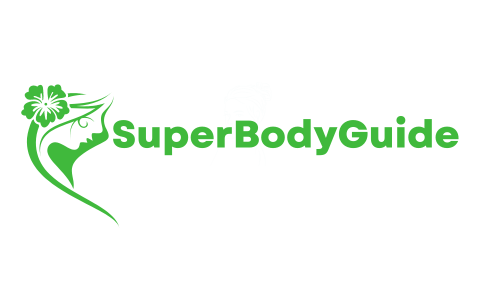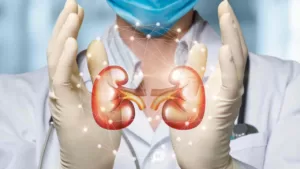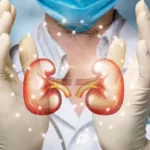The Best Fluffy Pancakes recipe you will fall in love with. Full of tips and tricks to help you make the best pancakes.
Are you struggling with persistent ear pain that seems to be linked to your sinus issues? The discomfort and pressure caused by sinus-related ear pain can be incredibly frustrating to deal with, but understanding the underlying causes and discovering effective remedies can provide much-needed relief.
In this comprehensive guide, we will delve into the various factors that contribute to sinus-related ear pain, including sinus infections, ear congestion, earwax buildup, and allergies. You’ll also learn about a range of tried-and-tested remedies, such as nasal irrigation, steam inhalation, over-the-counter medications, warm compresses, hydration, and the importance of rest and relaxation. We’ll explore when it’s necessary to seek medical attention and provide expert recommendations to help you manage and alleviate sinus-related ear pain effectively. If you’re seeking answers on how to find relief from sinus-related ear pain, this article is your go-to resource for valuable insights and practical solutions.
Key Takeaways:
- Nasal irrigation and steam inhalation can help alleviate ear pain caused by sinus infections by clearing congestion and reducing inflammation.
- Over-the-counter medications, such as pain relievers and decongestants, can provide temporary relief from ear pain and sinus pressure.
- If ear pain persists or is accompanied by other symptoms, it is important to seek medical attention to properly diagnose and treat the underlying cause.
Finding Relief from Sinus-Related Ear Pain
If you are experiencing ear congestion or sinus-related ear pain, it’s essential to find effective remedies and understand when to seek medical attention to alleviate the discomfort and promote healing.
Common symptoms of ear congestion and sinus-related ear pain can include a feeling of fullness in the ears, changes in hearing, and discomfort in the ears or surrounding sinus areas.
The causes of these symptoms can vary, from sinus pressure due to allergies or infections to the effects of air travel or changes in altitude. This discomfort can significantly impact daily activities, such as difficulty concentrating, disrupting sleep, and causing overall discomfort.
In such cases, over-the-counter pain medication, nasal decongestants, or steam inhalation can provide relief, but it is advisable to consult a healthcare professional for persistent or severe ear pain.
Understanding the Causes
Understanding the causes of ear congestion and sinus-related ear pain is crucial to identify the underlying issues and determine the most effective remedies for relief.
Ear congestion and sinus-related ear pain can be attributed to various factors, with allergies being a common trigger. Allergens such as pollen, dust mites, pet dander, and certain foods can lead to inflammation and congestion in the sinuses and Eustachian tubes, resulting in discomfort and pressure in the ears. Sinus infections, often caused by viruses or bacteria, can contribute to ear congestion and pain. When the sinuses become inflamed and congested, the pressure can impact the Eustachian tubes, causing discomfort and impaired hearing.
Sinus Infection
A sinus infection, also known as sinusitis, can lead to significant sinus congestion and contribute to ear discomfort due to the close connection between the sinuses and the ear canals.
Ear Congestion
Ear congestion, often associated with fluid buildup or inflammation, can result from various factors such as allergies, air travel, or underlying ear conditions like Meniere’s disease or middle ear infections.
Earwax Buildup
Accumulation of earwax, or cerumen, in the ear canal can lead to ear congestion and discomfort, potentially impacting hearing and contributing to ear-related symptoms.
Allergies
Allergies, whether seasonal or related to specific triggers, can contribute to sinus and ear congestion, often requiring targeted interventions to alleviate the associated discomfort.
Effective Remedies
Seeking effective remedies for ear congestion and sinus-related ear pain is essential to alleviate discomfort and promote recovery, with various interventions available to address these symptoms.
Nasal irrigation, also known as nasal rinsing, can effectively alleviate sinus-related ear pain by clearing mucus and allergens from the nasal passages. Meanwhile, steam inhalation, through inhaling steam from a bowl of hot water, can also provide relief by reducing congestion and promoting drainage. Over-the-counter medications such as decongestants and antihistamines play a significant role in reducing nasal inflammation and alleviating ear discomfort caused by sinus issues.
Nasal Irrigation
Nasal irrigation, through methods like saline rinses or neti pots, can help alleviate sinus congestion and indirectly address associated ear discomfort by promoting sinus health and drainage.
Steam Inhalation
Inhaling steam, whether through a steam room or a bowl of hot water, can provide relief from sinus and ear congestion by promoting sinus drainage and reducing inflammation.
Over-the-Counter Medications
Over-the-counter medications, including pain relievers and nasal decongestants, offer accessible options to address ear congestion and sinus-related discomfort, providing temporary relief from associated symptoms.
Warm Compress
Applying a warm compress, such as a hot moist washcloth, to the affected ear area can help alleviate discomfort, promote circulation, and provide relief from ear congestion or sinus-related pain.
Hydration
Maintaining adequate hydration is essential for supporting overall sinus and ear health, as it can help prevent fluid buildup, promote mucus clearance, and reduce the impact of environmental triggers.
Rest and Relaxation
Taking time for rest and relaxation can aid in the management of ear congestion and sinus-related discomfort, allowing the body to recover and reduce the impact of stress and environmental factors on ear health.
When to Seek Medical Attention
Knowing when to seek medical attention for unresolved ear congestion or sinus-related ear pain is crucial to address potential underlying conditions or complications that may require professional intervention.
It is important to be proactive in identifying concerning symptoms that may indicate a need for medical evaluation.
Chronic ear congestion accompanied by dizziness, hearing loss, or severe pain, or sinus-related discomfort with persistent pressure, discolored nasal discharge, or facial swelling warrant a visit to a healthcare provider. If symptoms do not improve with over-the-counter remedies, or if there is a history of recurrent ear infections or sinus issues, seeking medical attention is advisable.
Expert Recommendations
Expert recommendations for managing ear congestion and sinus-related ear pain can provide valuable insights and guidance on effective strategies, preventive measures, and potential treatment options for long-term relief and improved ear health.
Accessing professional advice from qualified medical professionals and specialists is crucial in addressing these conditions. Their expertise can help in identifying underlying causes, recommending appropriate medication or treatment plans, and offering personalized approaches tailored to individual needs. By integrating their insights and following prescribed therapies or remedies, individuals can experience a significant reduction in discomfort and improve their overall well-being.
Staying updated with relevant authorities and associations provides access to the latest advancements and best practices, ensuring comprehensive management of ear congestion and sinus-related ear pain.
Frequently Asked Questions
What helps ear pain from sinus infection?
The following remedies can help relieve ear pain from a sinus infection: over-the-counter pain relievers, warm compress, steam inhalation, nasal decongestants, saline nasal spray, and staying hydrated.
Can over-the-counter pain relievers help with ear pain from sinus infection?
Yes, taking over-the-counter pain relievers such as ibuprofen or acetaminophen can help alleviate ear pain caused by a sinus infection.
How does a warm compress help with ear pain from sinus infection?
Placing a warm compress or heating pad on the affected ear can help alleviate ear pain by increasing blood flow and reducing inflammation.
Does steam inhalation help with ear pain from sinus infection?
Yes, inhaling steam from a hot shower or a bowl of hot water can help relieve ear pain by reducing congestion and loosening mucus in the sinuses.
Can nasal decongestants help with ear pain from sinus infection?
Yes, nasal decongestants can help relieve ear pain by reducing swelling in the nasal passages and promoting better drainage of the sinuses.
Is staying hydrated important for relieving ear pain from sinus infection?
Yes, staying hydrated by drinking plenty of fluids can help thin out mucus and ease pressure in the sinuses, which can help alleviate ear pain.








